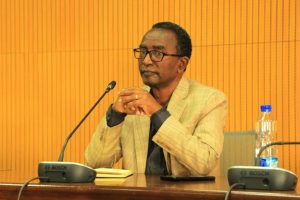
Ethiopia has many tangible and intangible heritages that are registered by the United Nations Education, Science and Culture Organization (UNESCO) as heritages of the world. But there are also many other heirtages in various place that are yet to be recognized as worlds heritage.
One of these intangible heritages is Timket. Timket is not yet registered on UNESCO list. As one of the biggest holidays celebrated by followers of the Ethiopian Orthodox Church Timket gets a big place not only in the time table of the but also that of the whole nation. Actually all the annual holidays of the church are celebrated with much fervor.
What makes Timket different from other holidays is it is celebrated with many festivities both in the eve, called Ketera and the next day. Unlike other holidays where people do the celebration at home with families and friends, Timket takes place outside in the presence of a mass of people. People spend both days celebrating the feast outdoors. But through time Timket has added up more cultural features that are worthwhile in the life of the society.
One of the most notable ones is the attempt by boys and girls to carefully observe on the crowd so as to choose their future spouses. More importantly people of any ethnic or social background take to the streets with in their respective traditional costumes, hairstyles and beautification. Along with the religious songs, traditional singing and dancing is common during the feast.
This creates a very spectacular scene in the venue. This has been handed down from generation to generation with no interruption. It has kept people together and strong with mutual respect. People still long for Timket vibes every year.
Their longing for the holiday means that they value the splendor and happiness it also brings along with it, that is the togetherness of people of diverse culture. Nowadays Timket is one of the events that attract many foreign tourists to the country.
The Timket baths, called Temkete Bahr in various parts of the country are now drawing a large number of foreigners who travel all the way from home to see how people of Ethiopia gather together to share a spiritual blessing without causing any havoc or mess. They rather amaze any observer when they colorfully accompany the arks or Tabots to and from the church with religious songs and prayer.
Along with accompanying the tabots, people play their cultural dressing, food and song that they display in the venue of the celebration. Everyone also enjoys each other’s culture. The celebration, along with other cultural practice, has meaningfully played a big role in inculcating the culture of tolerance and unity.
Just as the church and the laity preserved this beautiful, all concerned bodies need to further upscale efforts to successfully register Timket as worlds heritage. Ministry of Culture and Tourism has currently managed to put it on the pending list and is waiting for its turn to be one of the world’s heritages. Hopefully, it will successfully join the list of other tangible and intangible heritages in UNESCO’s list for the benefit of not only Ethiopians but for the entire world.
Herald January 19/2019




